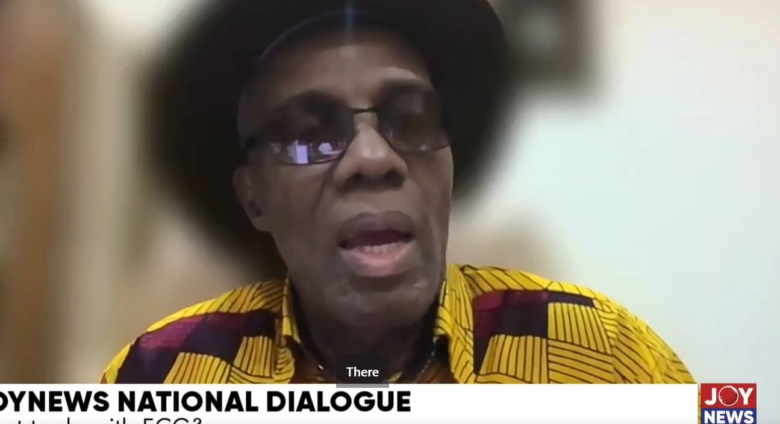
Audio By Carbonatix
The chairman of the Technical Committee on the Privatisation of the Electricity Company of Ghana (ECG), Jabesh Amissah-Arthur, has advised Chief Executive Officers (CEOs) of public institutions to develop the courage and skills to withstand external political interference in their line of duty.
His remarks come amid growing concerns about the politicisation of state-owned enterprises in Ghana, including the energy sector, where political influence is often cited as a barrier to efficiency and sound decision-making.
Speaking at the JoyNews National Dialogue on Thursday, April 10, Mr Amissah-Arthur acknowledged that political interference in state institutions is inevitable but stressed that it is the responsibility of top management to protect their organisations from undue political pressure that could compromise their operations.
Read also: ECG was never at the table in terms of revenue – Dubik Mahama
He explained that the ability to minimise the negative impact of political influence is a key test of leadership, especially for CEOs in the public sector.
“A lot of people have talked about political interference, but what I will say is that political interference is everywhere, and it is the duty of top management to keep political interference to a minimum and away from it. If you are a CEO and you cannot protect the company from external influences that let it do things that it shouldn't do, then maybe you should ask yourself if you are in the right place," he noted.
Mr Amissah-Arthur noted that while leaders cannot outrightly ignore directives from political authorities, they must find ways to advise, negotiate, or propose alternative solutions that serve the best interests of the company and the country.
“You have to be able to point out to the person who is giving you the instruction that this will not work and will not be to the benefit of the organisation,” he said.
He urged public servants to always act in the best interest of the people of Ghana, adding that it is not enough to hide behind the excuse of “orders from above” to implement harmful policies.
According to Mr Amissah-Arthur, the real test of leadership lies in a CEO’s ability to protect institutional integrity while finding innovative ways to meet government expectations without compromising the organization’s values or sustainability.
Latest Stories
-
GAF airlifts Baba Yara Stadium stampede victim to 37 Military Hospital
7 minutes -
Photos: Funeral rites for engineer Charles Amissah who died after alleged denial of emergency care
14 minutes -
Taking collagen keeps skin more elastic but won’t stop wrinkles, say scientists
14 minutes -
Principal of Nalerugu Nurses and Midwifery College suspended over unauthorised admissions
18 minutes -
Driver dies in trailer crash at Kordzeto in Hohoe
21 minutes -
India and Israel pledge to boost ties in defence and technology
24 minutes -
Livestream: Mahama delivers 2026 State of the Nation Address
25 minutes -
Nigerian artistes’ global success about individuals, not the country – Philkeyz
26 minutes -
Business end of European season
29 minutes -
55 Ghanaians killed in Russia–Ukraine war – Ablakwa
36 minutes -
Deloitte West Africa appoints Yomi Olugbenro as CEO-Elect
40 minutes -
Bawumia visits Ga Mantse, wishes him speedy recovery following accident
42 minutes -
Stanbic Bank Ghana leads US$205m financing for Engineers & Planners:
52 minutes -
Minister Jinapor highlights importance of accurate energy meters during GSA visit
58 minutes -
Nexans unveils anti-counterfeit cable to tackle fakes and improve fire safety
59 minutes

